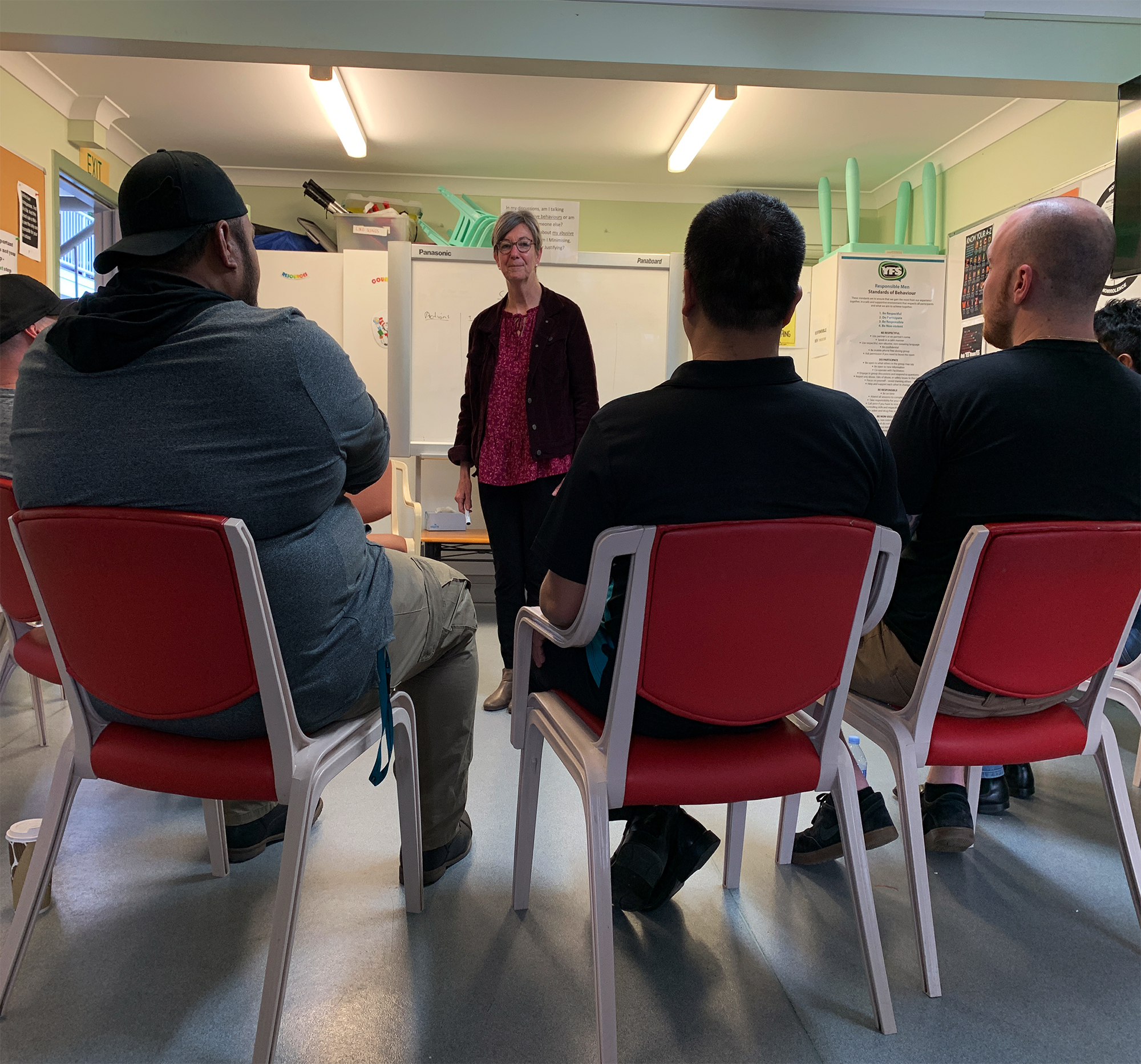Learning | Growing | Thriving
Meet the team helping men understand the impacts of domestic violence
It’s been 24 years since YFS launched a program for men who perpetrate domestic and family violence. Today, the program is called Responsible Men and it aims to improve the safety and wellbeing of children and women.

Responsible Men uses group work to help men who have perpetrated domestic and family violence to identify the discrepancy between what they are doing and what they want most: to have happy families and be great fathers.
Throughout the years, our workers have never stopped learning, adapting our approach to ensure it continuously reflects best practice thinking.
In the past year for example, Responsible Men workers built stronger links with Probation and Parole.
The move means the team can more effectively assess risks and follow up with Probation and Parole on issues that the men might raise during the program.
“They’ve always sent men to us, but now we have a hand-in-glove relationship,” said Pam, who manages the program. “Evidence shows that when there are short, swift consequences, men respond. So if we hear that a man is breaching a domestic violence order, we tell Probation and Parole. The men sign consent that allows us to do that.
“We are working with the only cohort in the world that goes home to their victims, eats with their victims and sleeps with them. It’s imperative that we have women and children foremost on our minds.”
When the program was formed, the workers were called counsellors. For a number of years they’ve been known as behaviour change facilitators.
The change might sound subtle, but it reflects a major shift based on extensive evidence according to Lavinia, who works in the team.
“Research that we commissioned showed that men change in front of other men,” Lavinia said. “Counselling is typically one-on-one and it’s been shown to be dangerous when working with men who perpetrate domestic violence.
“I used to be encouraged to challenge men. We would present the program and the men would just sit there. When they said something wrong, we would correct or challenge them either in groups or one-on-one.
“We now understand that our job is not to correct. That’s because we learned that when defensiveness starts, learning stops. Our job is about getting the men to think about their thinking. We try to disrupt their thinking to get to what we call the fertile questions.”
Responsible Men has been informed by research and similar programs throughout the world. Over time the program has emphasised communication and relationship building less and focused more on men’s goals – a happy family – and the incongruence between that and what their behaviour is creating.
“Many men want a happy family: they say they want to be the best dads ever,” Pam said. “So we ask them, ‘Well, what have you got now? If you’re thinking that you want to be the best dad, but you’re going to yell at your partner and control her, then something’s not sitting right. Your goal of what you want isn’t matched by your thinking.’
“This is what we are undoing. We are identifying the thinking, because that’s where they get the permission to do what they do.”
Another of the team’s key learnings in recent years has seen a change in groups from closed to open. As soon as they opened their groups, the team witnessed a rapid acceleration in behaviour change among the men.
“We still run a 16-week program, but men now roll in and roll out,” Pam said. “So you might have a man that has been in a group for one week, and you have other men who have been there for 10 weeks.
“Many men who enter the program have never been in group situations before. Having men who have been there for longer, they tend to challenge the new men immediately.
“If some men come in with an attitude of being disrespectful, the other men tend to say, ‘Hey mate, that’s not ok.’ They are challenging the new men because they have already learned that it’s not ok.”
Looking to the future, the team aims to forge stronger connections with all the agencies in Logan who are responding to domestic and family violence, including Queensland Police and Child Safety.
They’d also like to be able to offer longer programs.
“One of the biggest barriers we have is the length of our program: 16 weeks,” Pam said. “But we use the Duluth Model. It’s an evidence-based program that runs for 27 weeks.”
In 2019-20 the team will pursue opportunities to offer perpetrator programs in the Beaudesert area.
Find out more about our domestic and family violence services on the YFS website:
www.yfs.org.au/services/domestic-and-family-violence.
